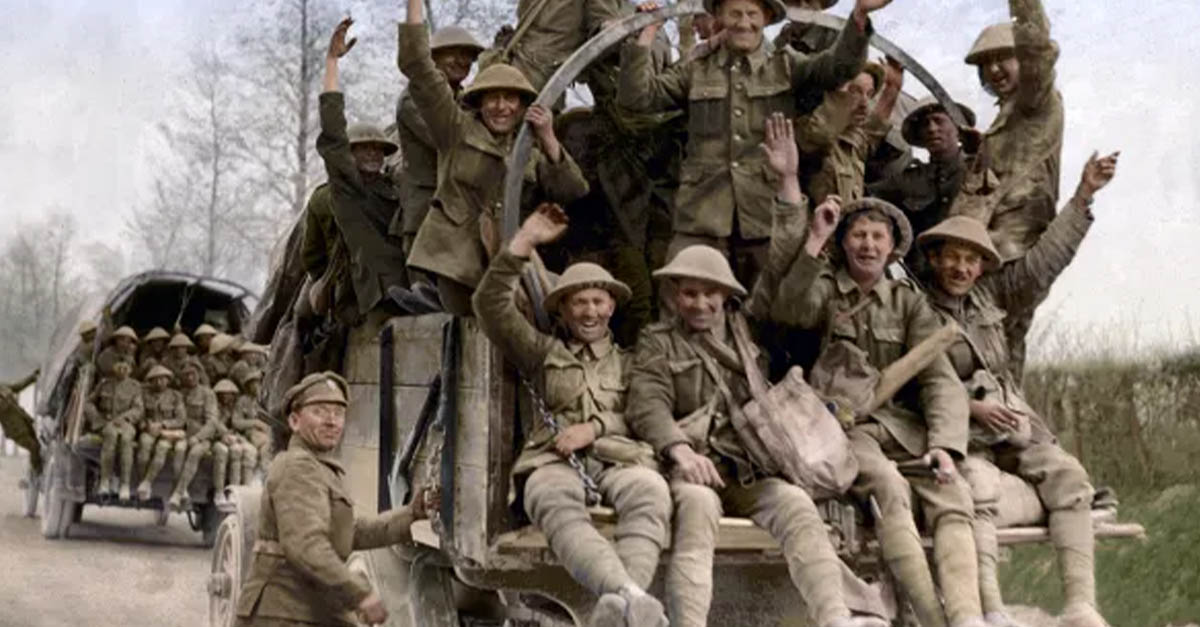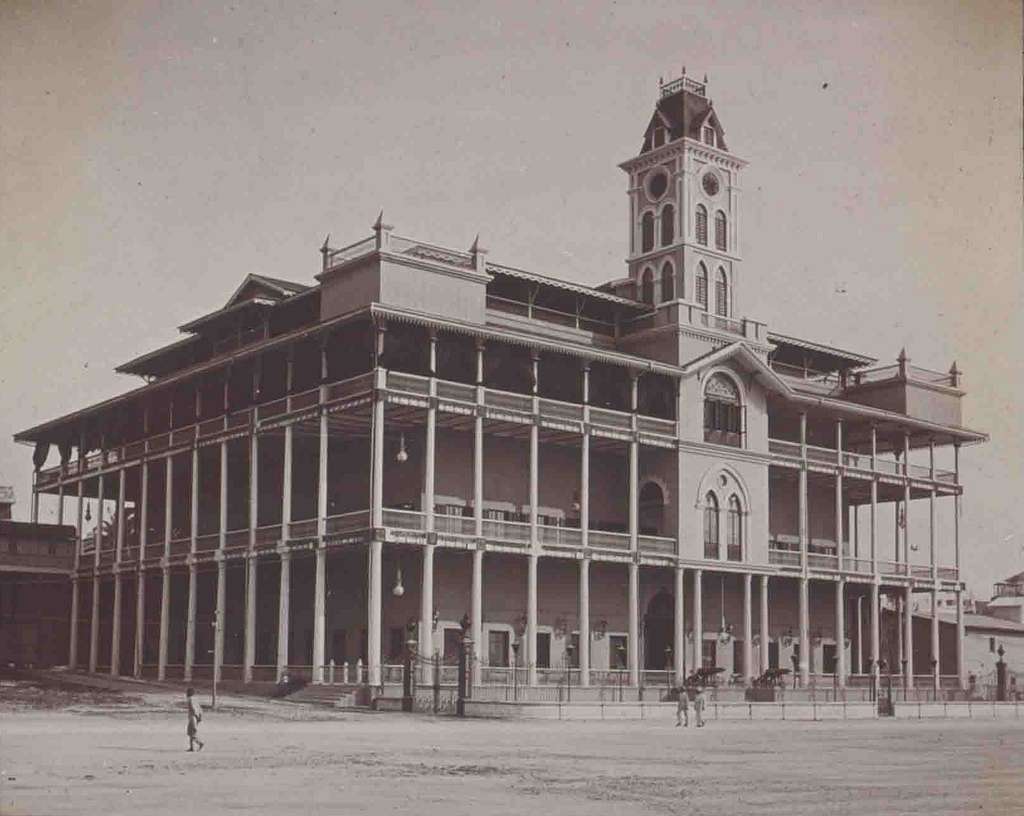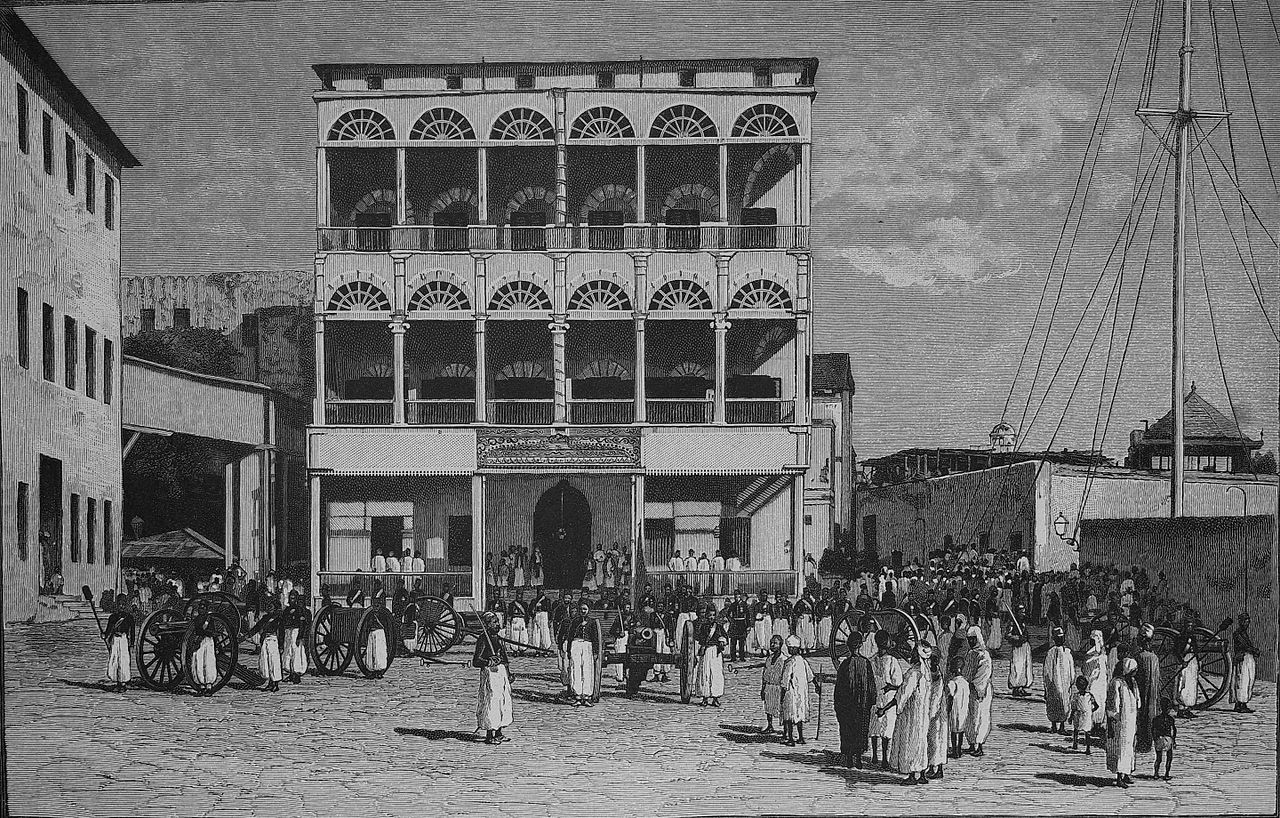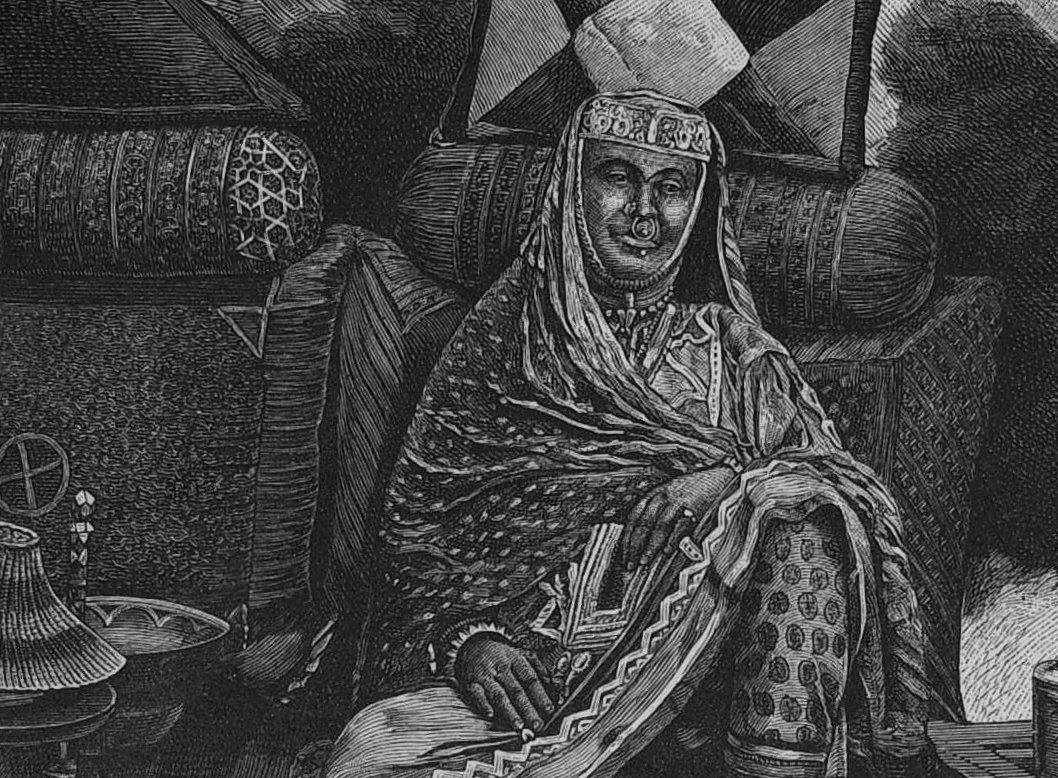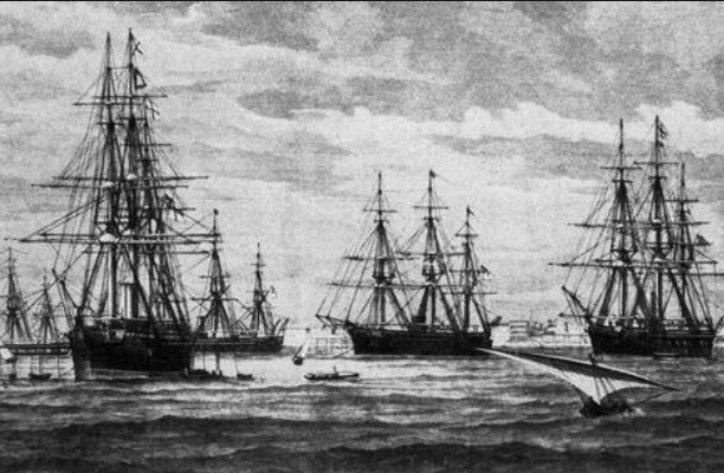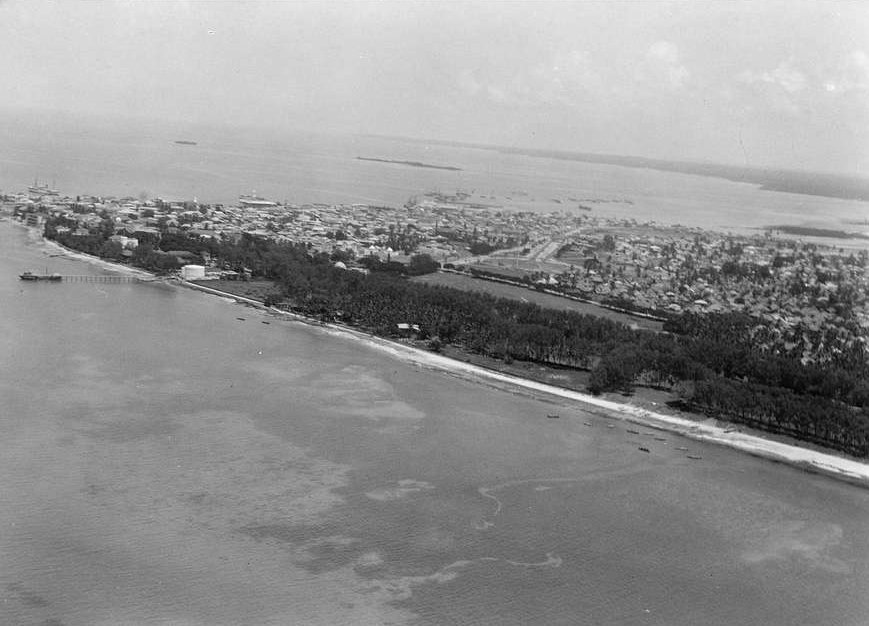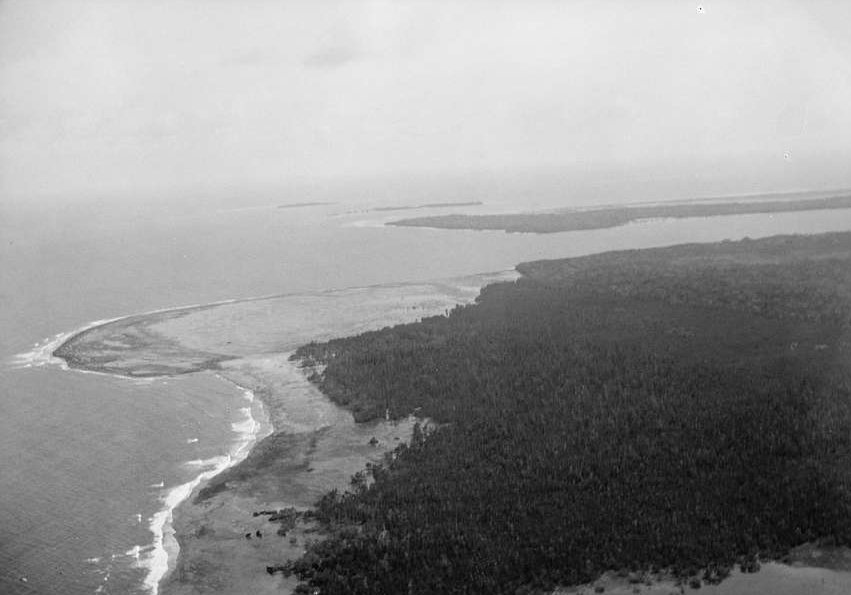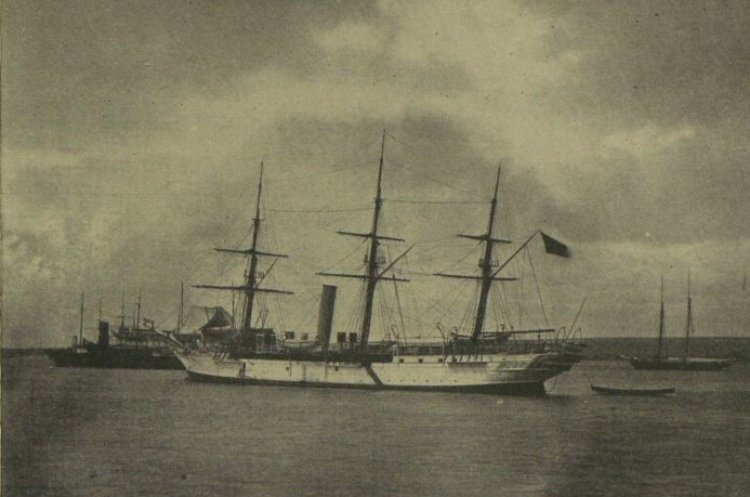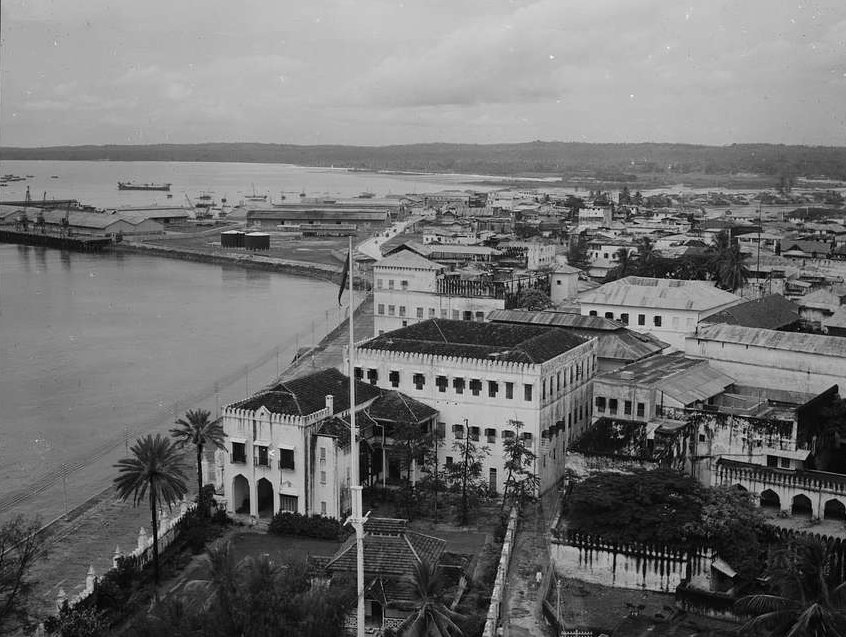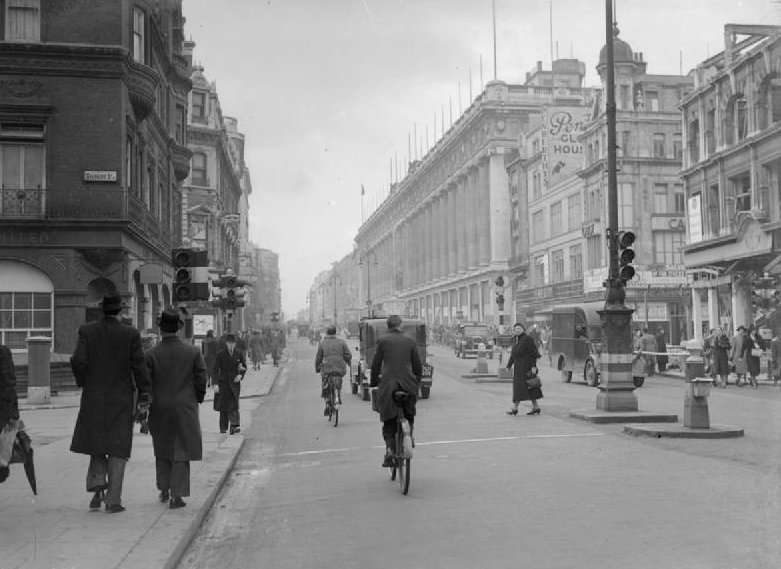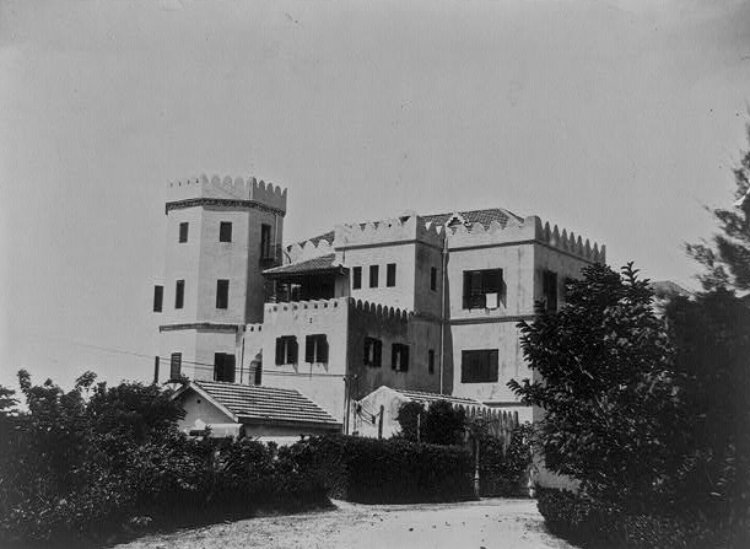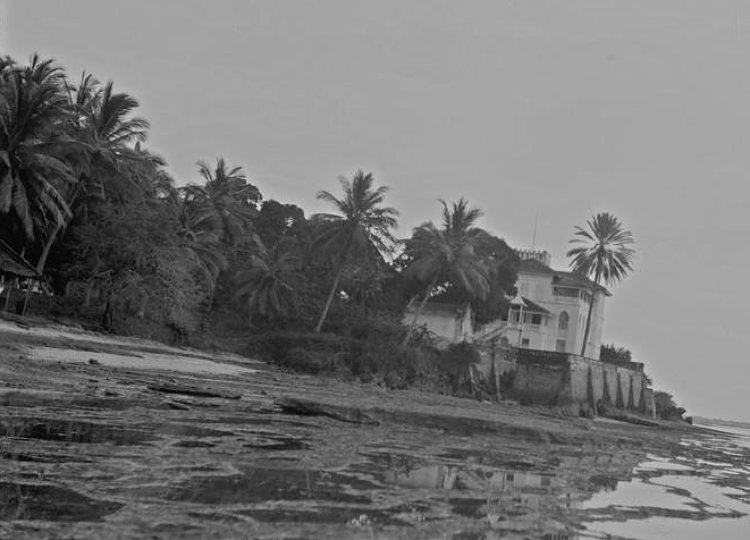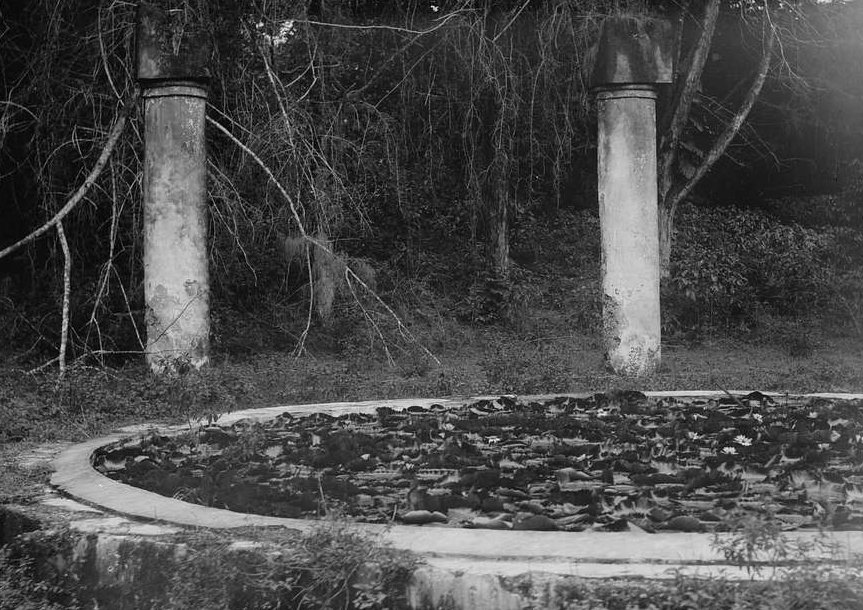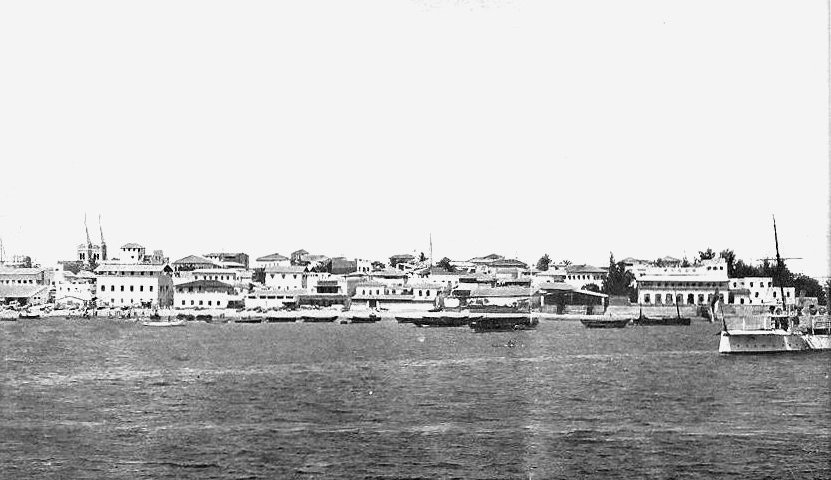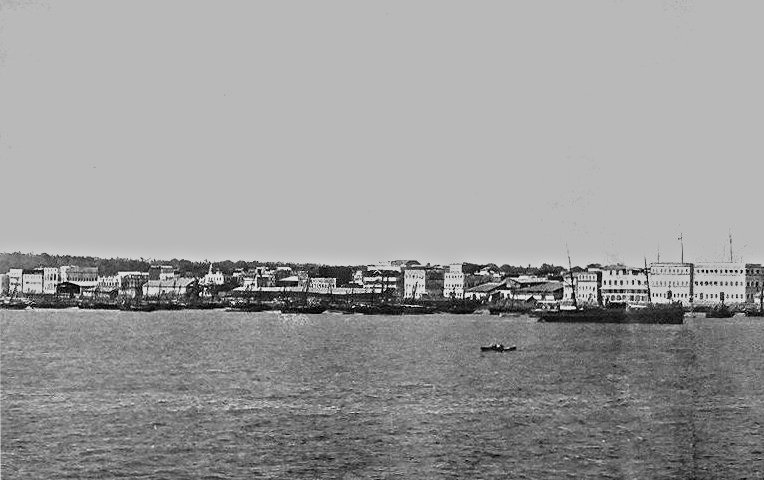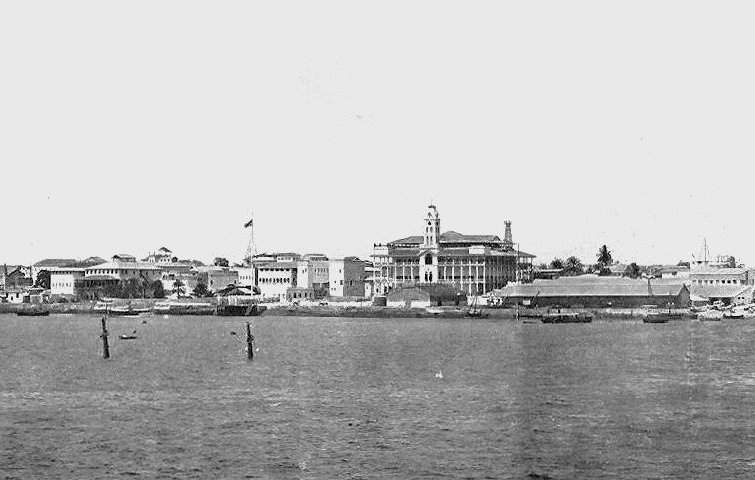The Shortest War In History
Human conflicts between nations differ in scale and duration, with some lasting decades, even centuries. Then there are the conflicts that are quickly resolved. However, only one conflict is considered the shortest in history…
This is everything you need to know about the Anglo-Zanzibar war.
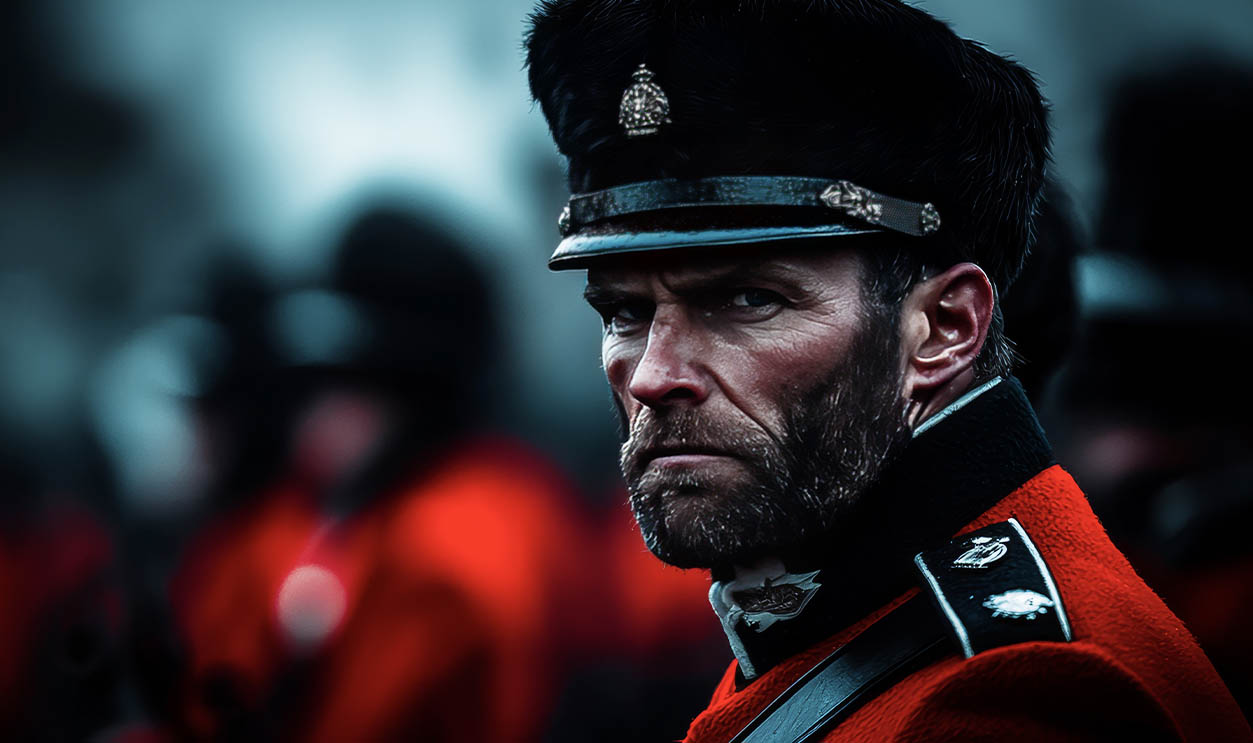
The Colonization Of Zanzibar
Part of contemporary Tanzania, Zanzibar was an island nation in the Indian Ocean. First colonized by Portugal in 1499, the Portuguese were expelled in 1698 when the archipelago came under the control of the Sultans of Oman.
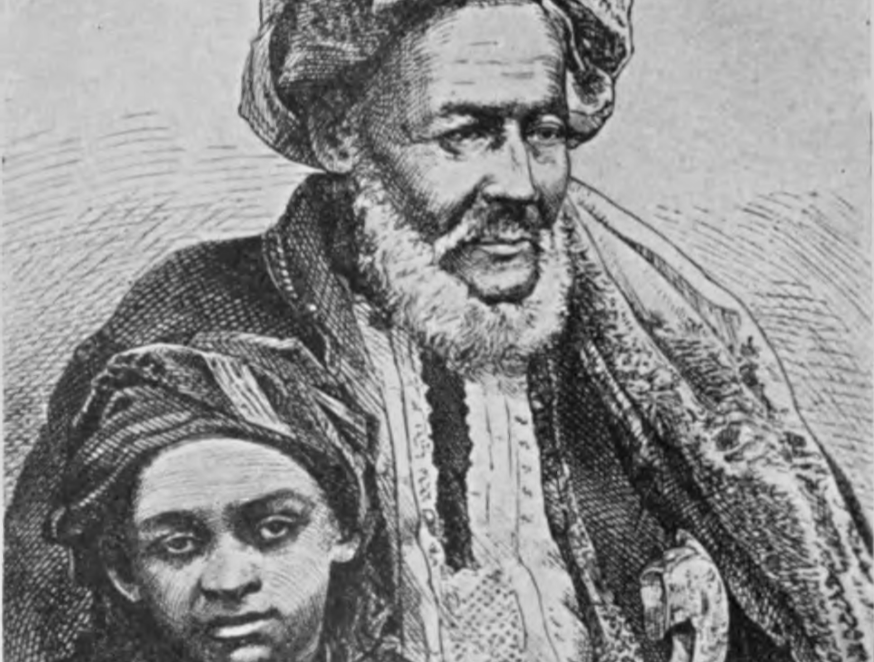 Francis Barrow Pearce, Wikimedia Commons
Francis Barrow Pearce, Wikimedia Commons
The Colonization Of Zanzibar
In 1858, Sultan Majid bin Said declared the main island, Unguja (or Zanzibar Island), independent from Oman. This was recognized by the United Kingdom which at that time oversaw Oman. The UK threatened a blockade of Zanzibar in 1873 in an effort to abolish the slave trade.
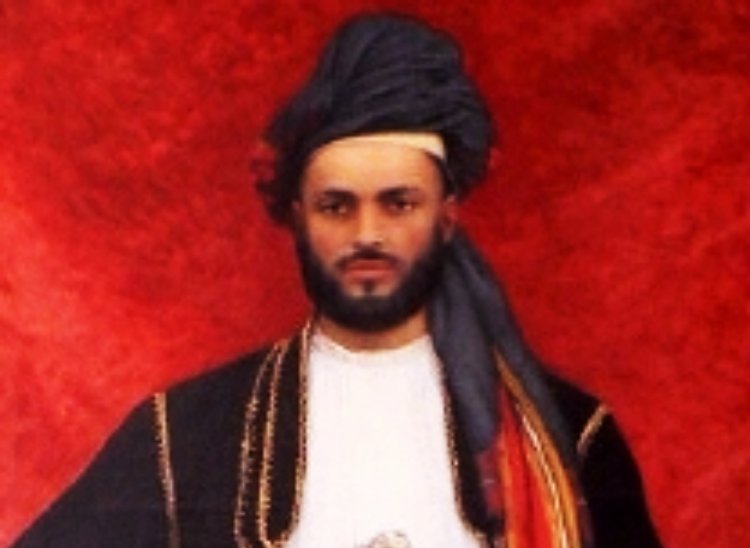 Unknown author, Wikimedia Commons
Unknown author, Wikimedia Commons
The Colonization Of Zanzibar
The ruling sultans established their capital city and government in Zanzibar. A large palace complex was built. By 1896, the palace consisted of the main palace, a large building for housing the harem, and the House of Wonders, a ceremonial palace that was the first building in East Africa to be outfitted with electricity.
The Colonization Of Zanzibar
The palace was built from timber and was not meant to be a defensive structure. The three main buildings were adjacent to one another, linked by covered bridges.
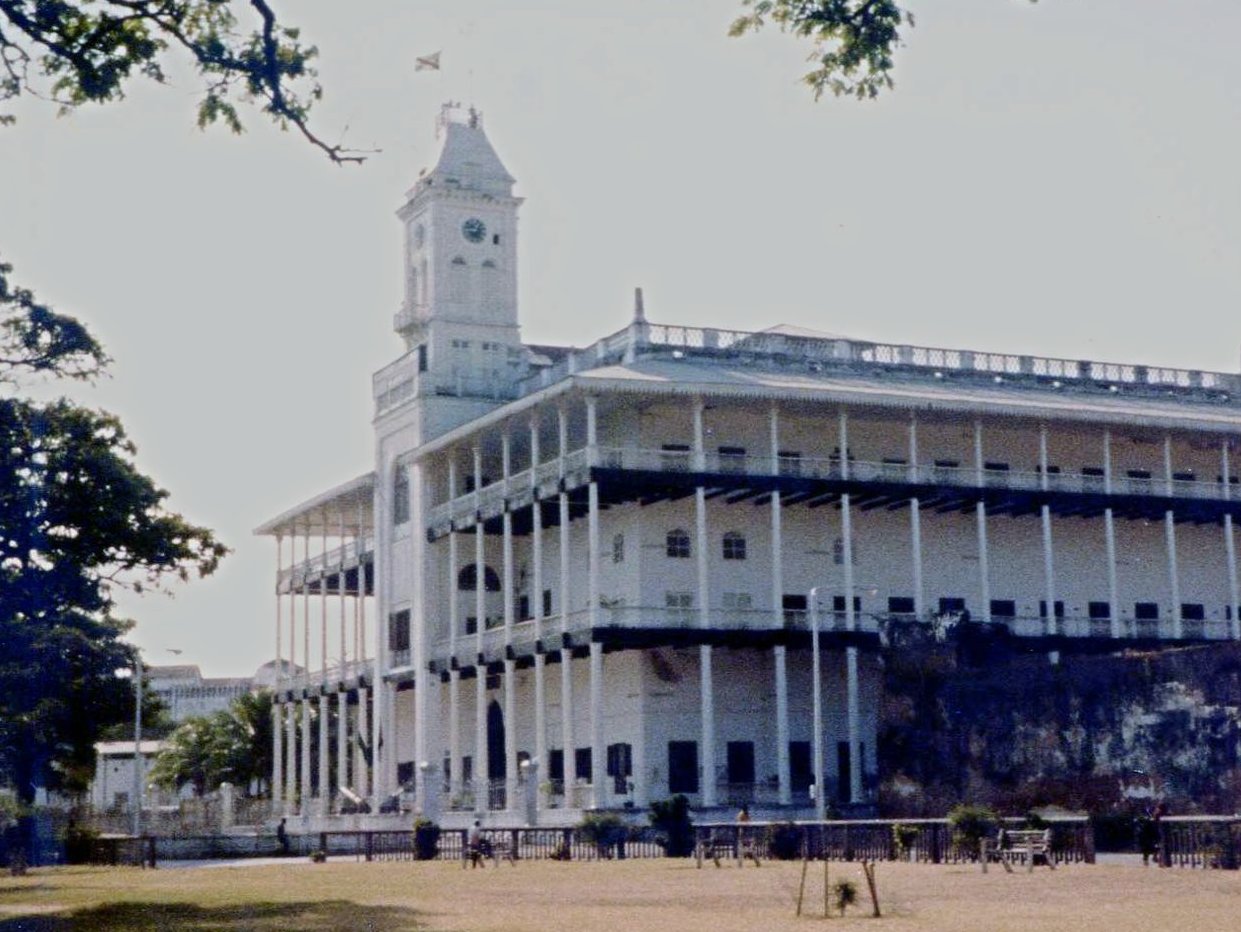 mwanasimba, CC BY-SA 2.0, Wikimedia Commons
mwanasimba, CC BY-SA 2.0, Wikimedia Commons
The Colonization Of Zanzibar
Relations between the sultanate and the United Kingdom were friendly, with Britain recognizing Zanzibar's sovereignty in 1886. The German Empire, however, was looking to expand into Africa and they were looking at areas in East Africa.
The Colonization Of Zanzibar
Throughout the late 19th century, the two empires vied for control of the trade in the region, as well as making further territorial gains. The Zanzibar sultans granted the rights of the land of Kenya to Britain while offering Tanganyika to Germany.
The Colonization Of Zanzibar
With that, slavery would be prohibited in those territories. However, many of the ruling classes protested this interruption of what they considered a valuable trade.
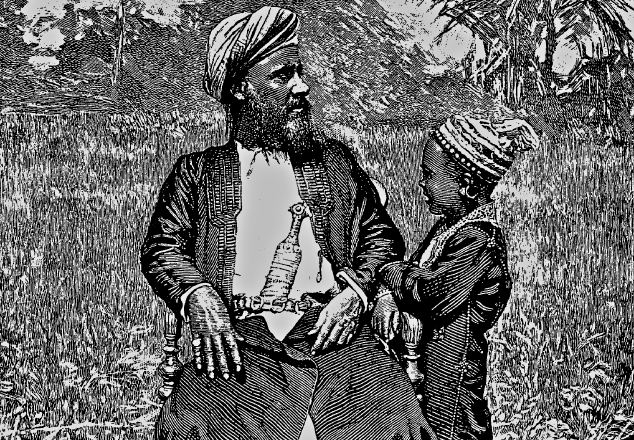 Unknown author, Wikimedia Commons
Unknown author, Wikimedia Commons
Conflict Between Empires
German authorities in Tanganyika refused to fly the flag of the Sultanate of Zanzibar, which claimed ultimate sovereignty of the territory, with the German Empire merely administering Tanganyika. This led to armed clashes between the locals and German troops, resulting in the loss of 20 Arabs.

History's most fascinating stories and darkest secrets, delivered to your inbox daily.
Conflict Between Empires
Attempts at restoring order in Tanganyika followed, with Zanzibari troops, led by British Brigadier-General Lloyd Mathews, sent in. Although things calmed down, there was still resentment among the population towards the Germans who believed Tanganyika was a German colony outright.
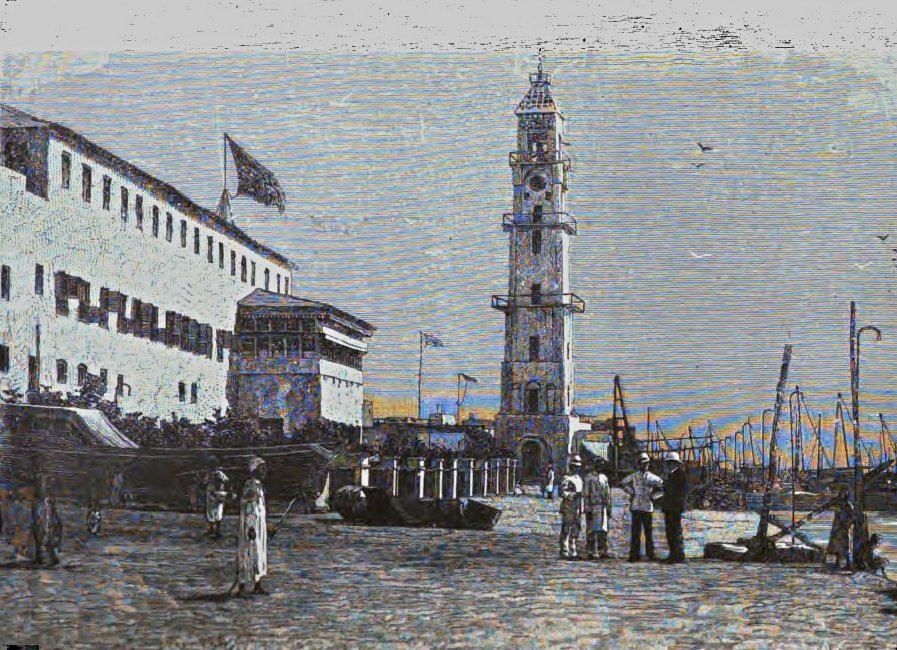 London Missionary Society, Wikimedia Commons
London Missionary Society, Wikimedia Commons
Conflict Between Empires
This resulted in further conflicts at Bagamoyo, with the loss of 150 locals by German forces. At Ketwa, German officials and their servants lost their lives. The sultan granted trade rights to the Imperial British East Africa Company.
 Bundesarchiv, CC-BY-SA 3.0, Wikimedia Commons
Bundesarchiv, CC-BY-SA 3.0, Wikimedia Commons
Conflict Between Empires
In 1890, Ali bin Said ascended to the sultanate. He banned the slave trade, although not slavery itself, and made Zanzibar a British protectorate, with Lloyd Mathews as First Minister. The British were also guaranteed a veto over the future appointment of sultans.
That same year, the Heligoland–Zanzibar Treaty between Britain and Germany was signed. This marked the official spheres of interest in East Africa for both colonial powers, with Germany ceding its rights in Zanzibar to the United Kingdom.
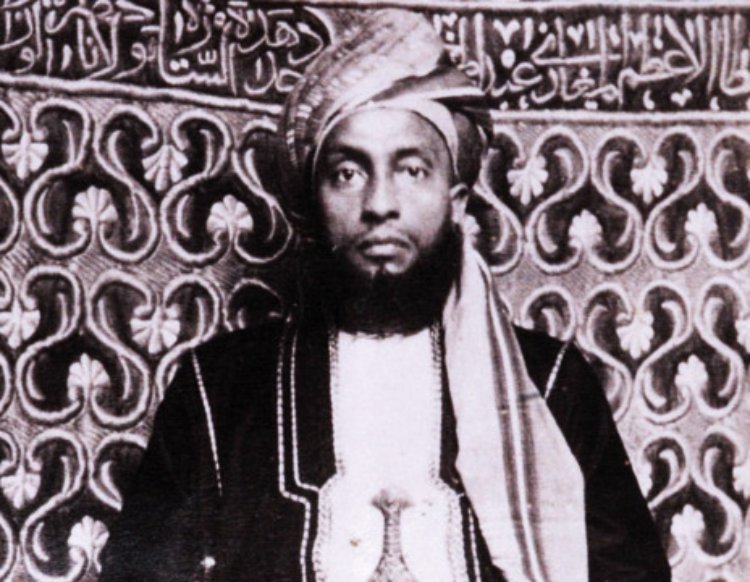 Jonas Tiškevičius, Wikimedia Commons
Jonas Tiškevičius, Wikimedia Commons
Establishment Of British Control
With this new power, Britain intended to eradicate slavery, something they had been attempting since 1804. Britain now had wider influence throughout the region.
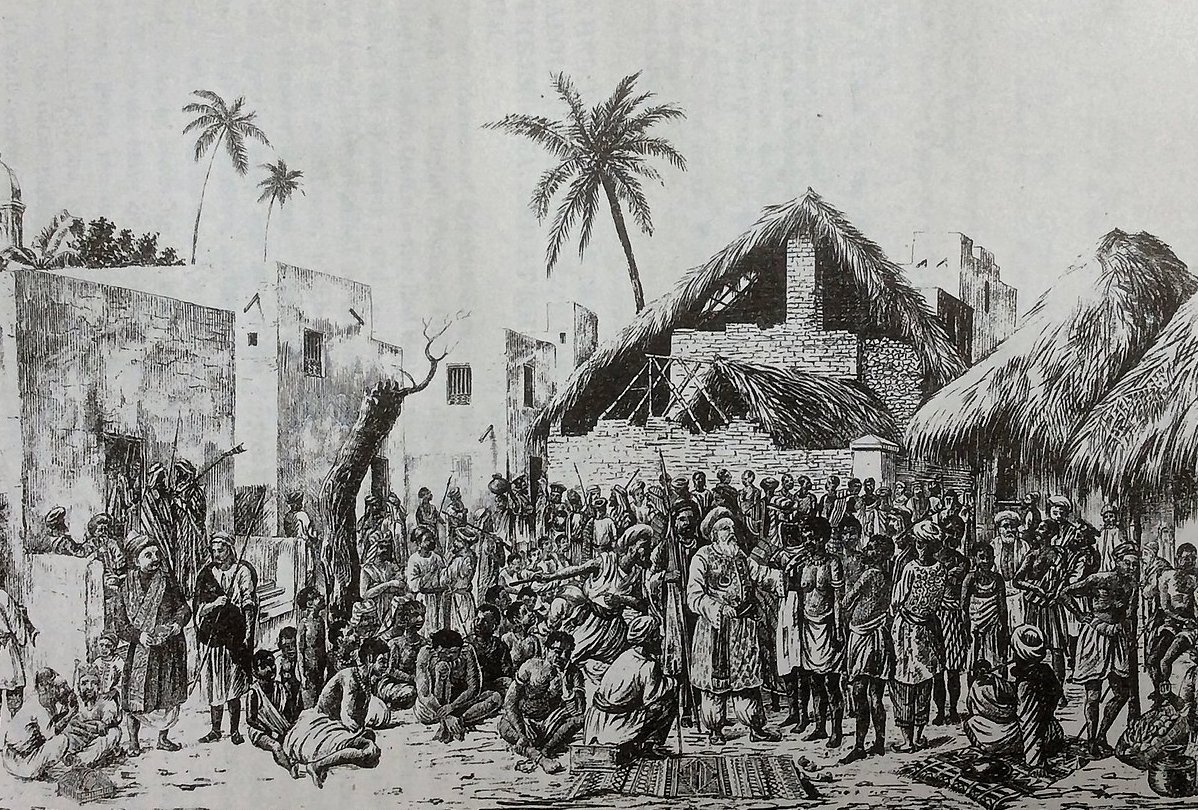 Edwin R L Stocqueler, Wikimedia Commons
Edwin R L Stocqueler, Wikimedia Commons
Establishment Of British Control
In 1893, Hamad bin Thuwaini became sultan. He maintained a close relationship with Britain but there was growing dissent among his subjects over Britain’s increased control of the country. The Arab ruling classes further objected to the local army being led by Britain and the abolition of the slave trade.
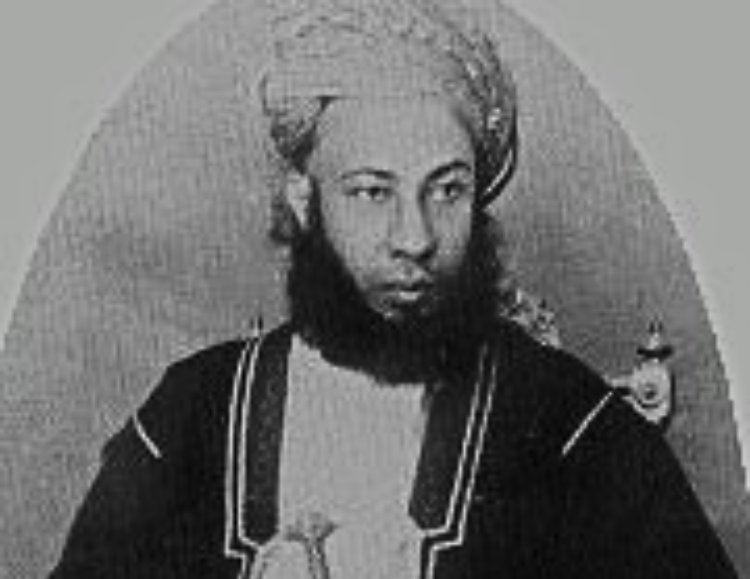 Unknown author, Wikimedia Commons
Unknown author, Wikimedia Commons
Establishment Of British Control
To quell this dissent, the British authorities authorized the sultan to raise a Zanzibari palace guard of 1,000 men. This led, however, to clashes between the palace guard and the British-led law enforcement. The palace guard was also accused of harassing European residents of Zanzibar.
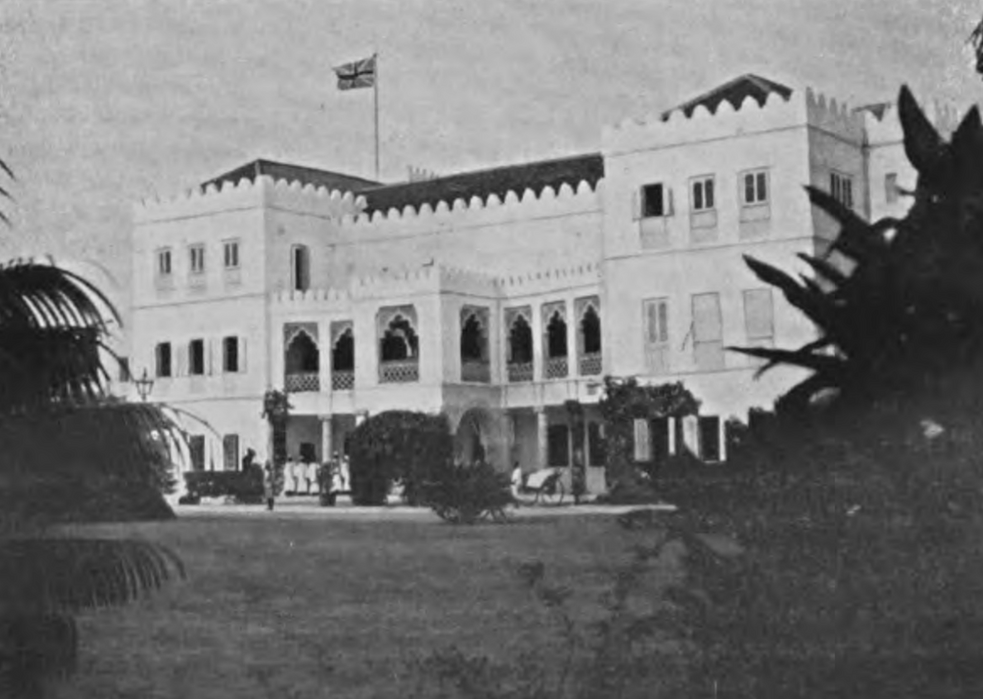 The Island Metropolis of Eastern Africa,
The Island Metropolis of Eastern Africa,
Escalation
On August 25, 1896, Sultan Hamad died suddenly. His 29-year-old nephew, Khalid bin Bargash, moved into the palace complex. Khalid bin Bargash was suspected by some to have assassinated his uncle.
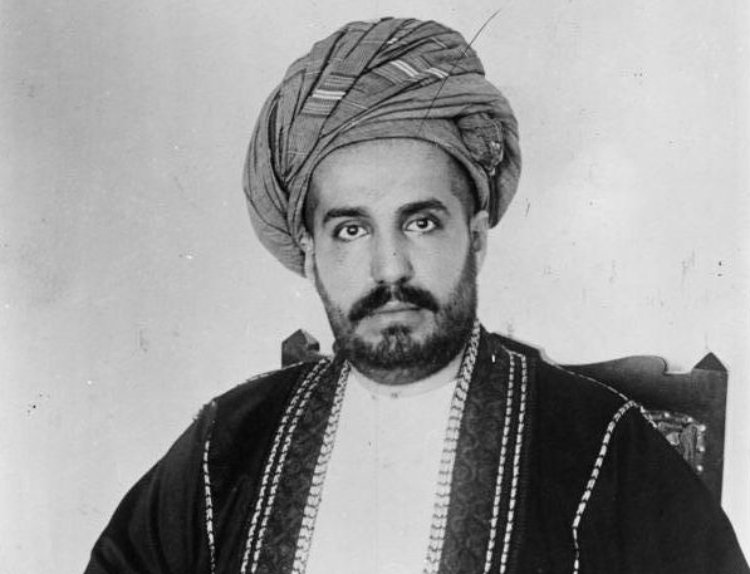 Bundesarchiv, CC-BY-SA 3.0, Wikimedia Commons
Bundesarchiv, CC-BY-SA 3.0, Wikimedia Commons
Escalation
In contravention of the treaty agreed with Ali, Khalid bin Bargash had seized power without British approval. The British had a preferred successor, Hamoud bin Muhammed, who was pro-British.
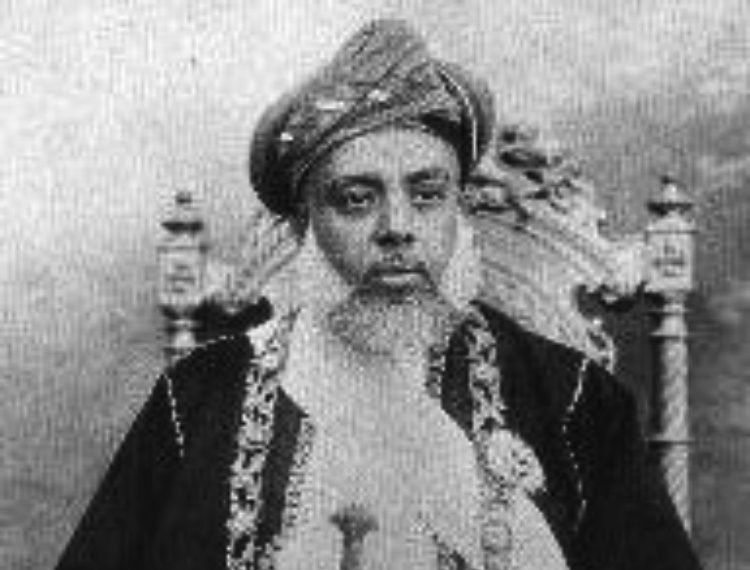 Unknown author, Wikimedia Commons
Unknown author, Wikimedia Commons
Escalation
Khalid was warned by both the consul and diplomatic agent to Zanzibar, Basil Cave and General Mathews, to think carefully about his actions. Khalid ignored these warnings, and he raised forces in the Palace Square under the command of Captain Saleh of the palace guard.
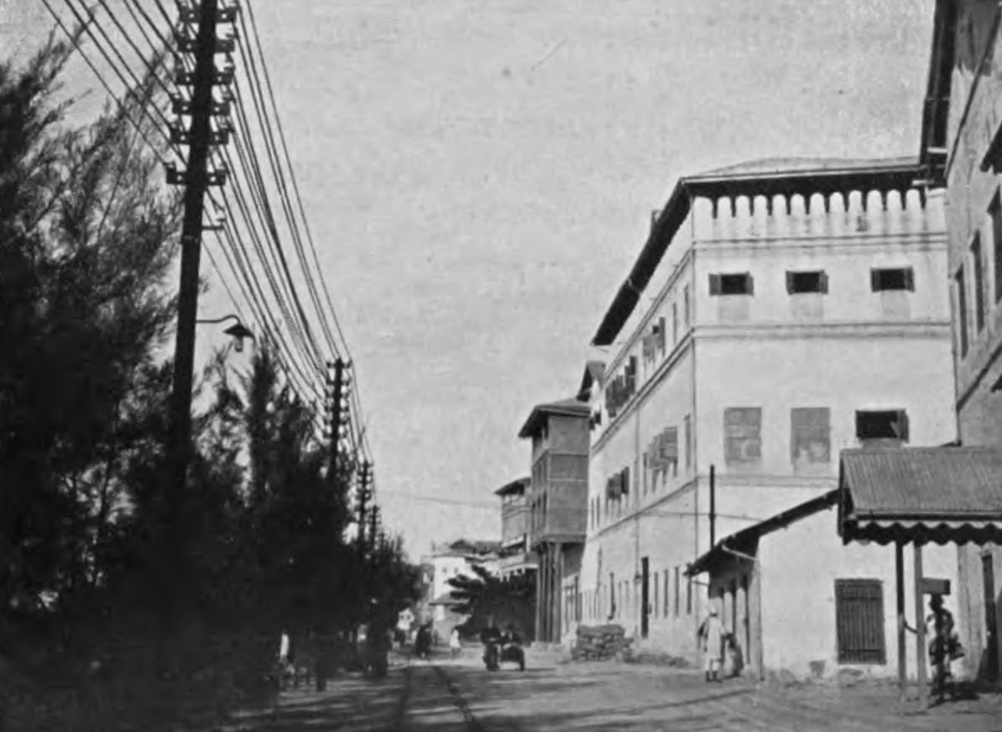 Zanzibar: The Island Metropolis of Eastern Africa,
Zanzibar: The Island Metropolis of Eastern Africa,
Escalation
By the end of the day, there were 2,800 men assembled. They were well-armed with rifles and muskets.
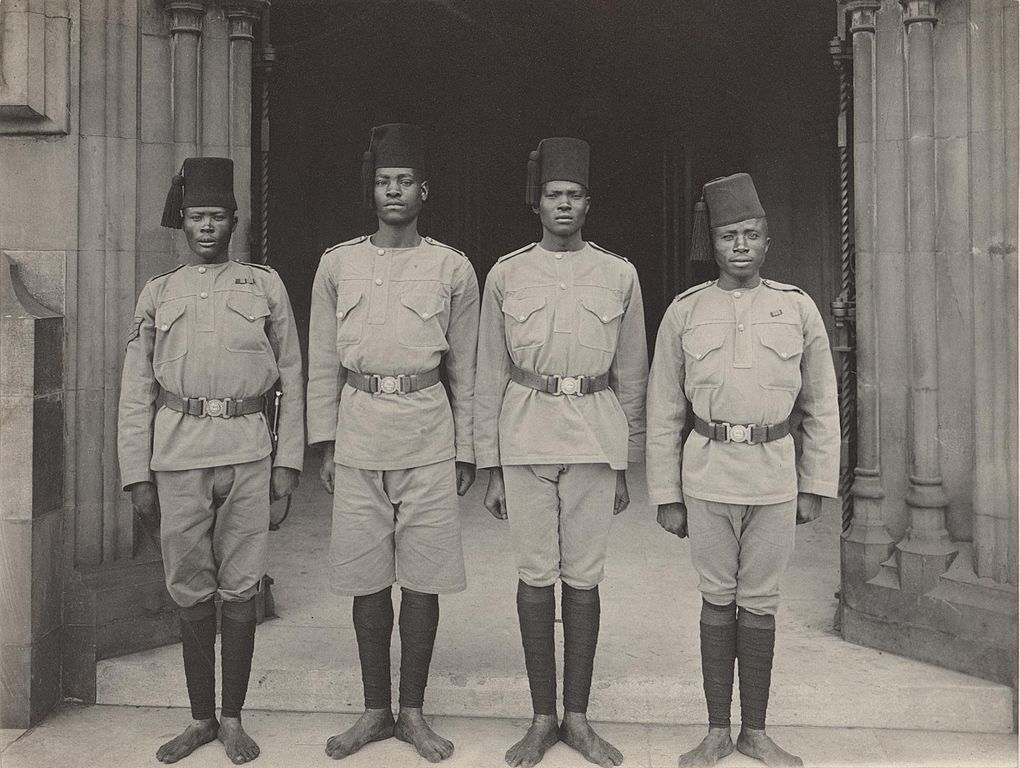 Sir (John) Benjamin Ston, Wikimedia Commons
Sir (John) Benjamin Ston, Wikimedia Commons
Escalation
Many of these forces were civilians but there were 700 well-trained Zanzibari Askari (law enforcement officers) within this group, loyal to Khalid. His forces were armed with artillery both old and new, and they were aimed at the British ships in the harbor.
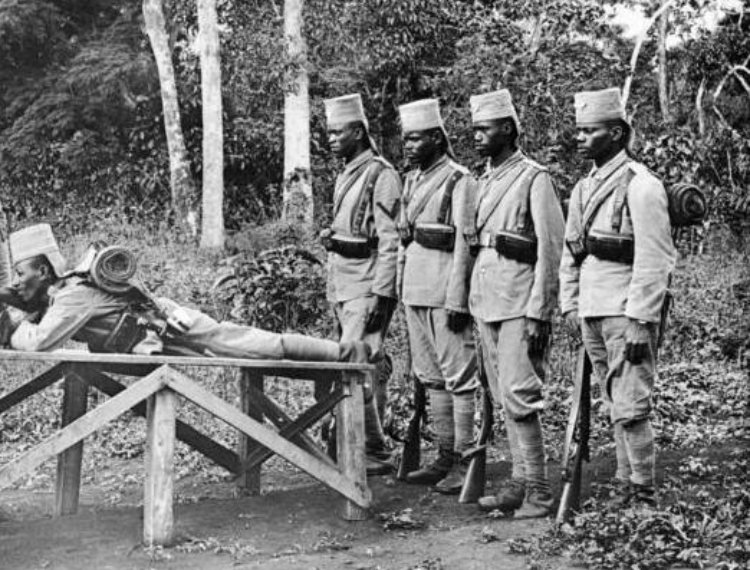 Bundesarchiv, CC-BY-SA 3.0, Wikimedia Commons
Bundesarchiv, CC-BY-SA 3.0, Wikimedia Commons
Escalation
Many of these arms had been given to the sultan by German Emperor Wilhelm II. Khalid’s troops also took possession of the Zanzibari Navy which consisted of a wooden sloop, the HHS Glasgow, built as a royal yacht for the sultan in 1878.
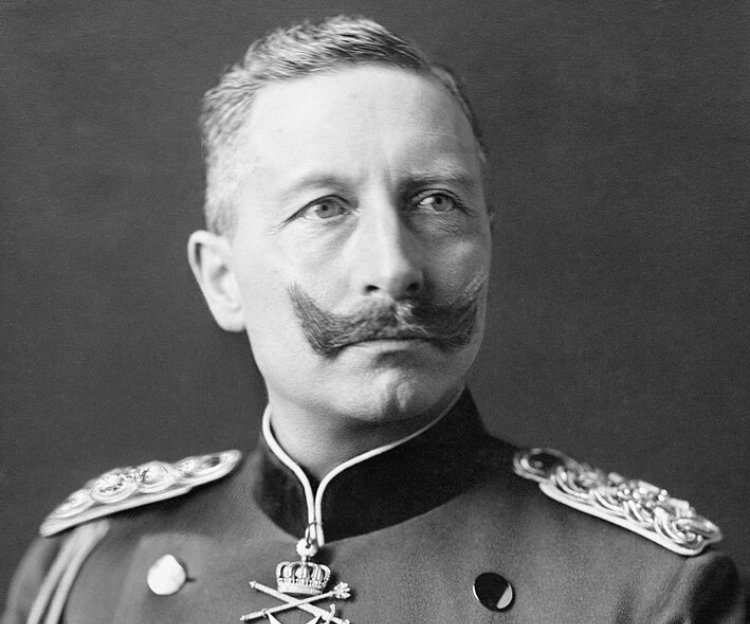 Thomas Heinrich Voigt, Wikimedia Commons
Thomas Heinrich Voigt, Wikimedia Commons
Escalation
The British also began to assemble their forces, with 900 Zanzibari Askaris loyal to the British. There were also 150 British sailors and marines stationed at Zanzibar with a cruiser and gunboat anchored in the harbor.
Escalation
Rioting broke out among the local population and the British naval forces came ashore. A smaller group of British sailors were utilized to guard the British consulate, where British citizens had gathered for protection.
Gathering Forces
Another gunboat was summoned to the harbor and was anchored opposite the palace. The reliability of the Askaris loyal to the British was questioned by some, but they proved to be professional and ready after several expeditions to East Africa.
Gathering Forces
The Askaris were also the only land troops to be fired upon by Khalid’s forces. The Askaris were armed with a cannon and a few other pieces of large artillery and were stationed in the customs house off the harbor.
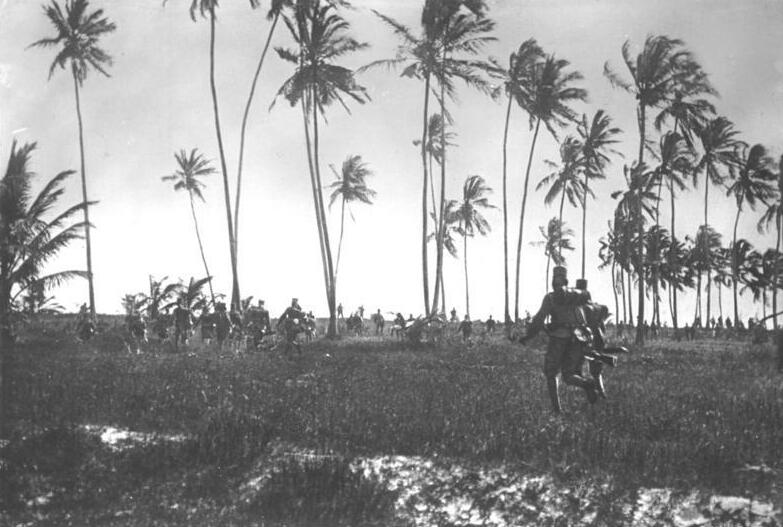 Bundesarchiv, CC BY-SA 3.0, Wikimedia Commons
Bundesarchiv, CC BY-SA 3.0, Wikimedia Commons
Gathering Forces
Khalid contacted the US consul, Richard Dorsey Mohun, hoping the American diplomat would recognize Khalid as sultan. Mohun responded by stating that he could not reply to Khalid’s message as his accession had not been verified by Her Majesty's government.
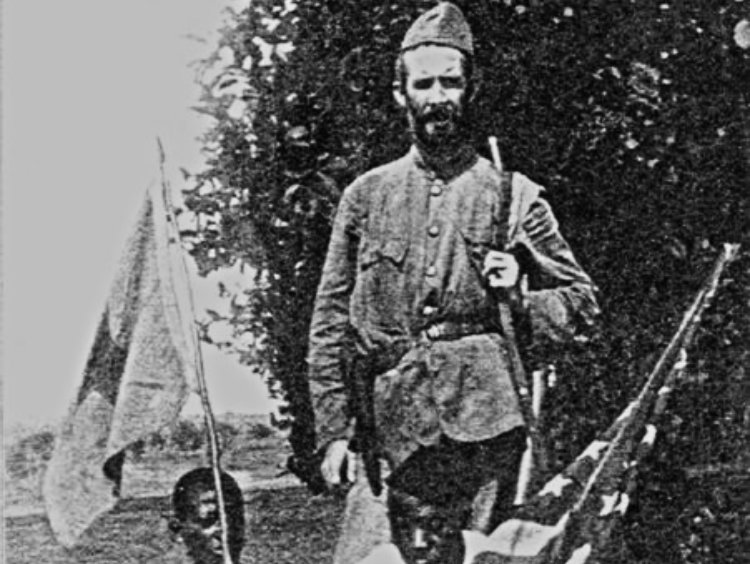 Unknown author, Wikimedia Commons
Unknown author, Wikimedia Commons
An Ultimatum
The British sent several messages to Khalid requesting he stand down, but these were ignored. Khalid announced that he would proclaim himself sultan at 3 pm.
An Ultimatum
The British responded by stating that this action would constitute an act of rebellion and Khalid's sultanate would not be recognized by the British government. At 2:30 pm, Sultan Hamad was buried, and exactly 30 minutes later, Khalid's succession was proclaimed.
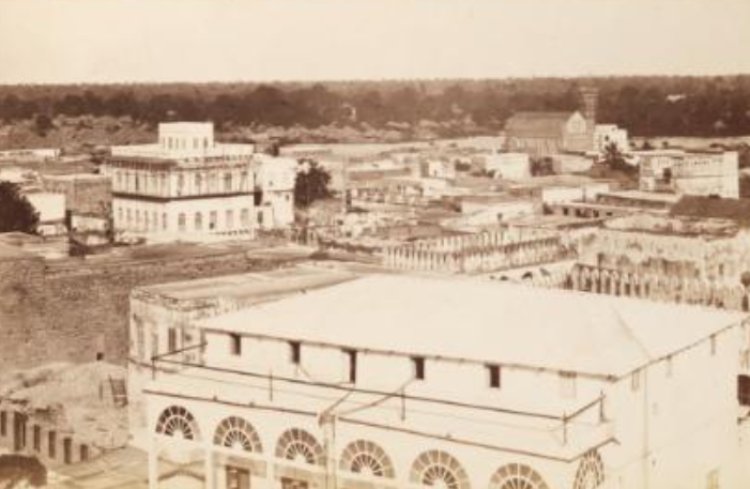 Melville J. Herskovits, Picryl
Melville J. Herskovits, Picryl
An Ultimatum
The local British authorities could not escalate hostilities without approval. They telegraphed a message to the Foreign Office in London, asking if they were authorized to fire upon the palace should any attempts at a peaceful resolution be unsuccessful.
An Ultimatum
The British, still nominally in control, asked all the foreign consulates in Zanzibar to lower their flags to half-mast in honor of the late Hamad. The only flag not lowered was the red flag of Khalid flying at the palace.
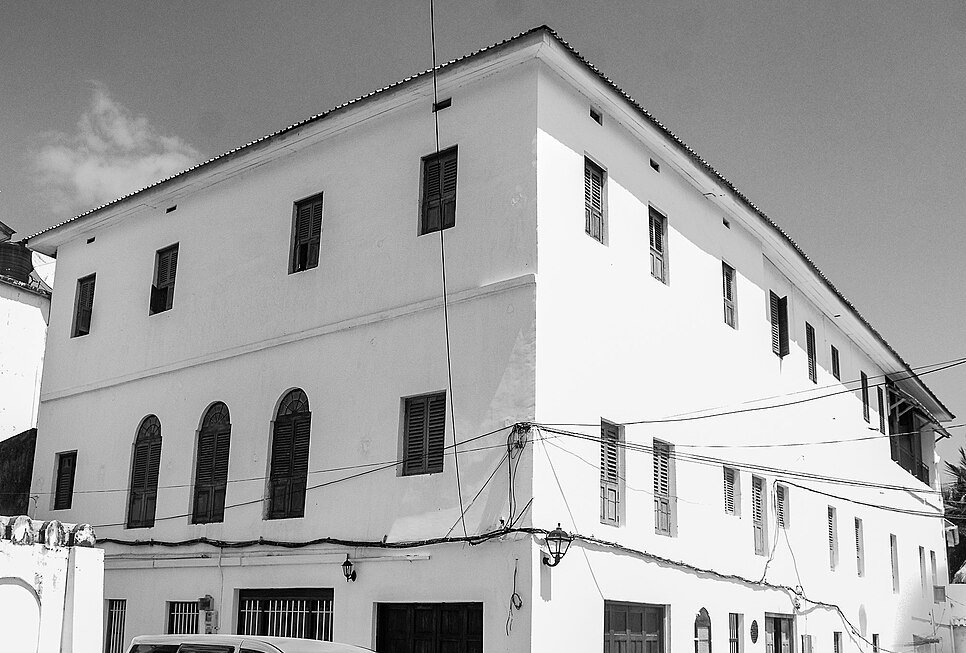 Erasmus Kamugisha, CC BY-SA 4.0, Wikimedia Commons
Erasmus Kamugisha, CC BY-SA 4.0, Wikimedia Commons
An Ultimatum
The British also asked the foreign consuls to not recognize Khalid as sultan. They all agreed.
An Ultimatum
The British sent Khalid an ultimatum, demanding he leave the palace by 9 am on August 27. At this point, Khalid barricaded himself inside the palace.
The Anglo-Zanzibar Conflict
With the expiration of the ultimatum, the British began a bombardment of the palace at 9:02 am. The palace quickly caught fire, and its defensive artillery was disabled.
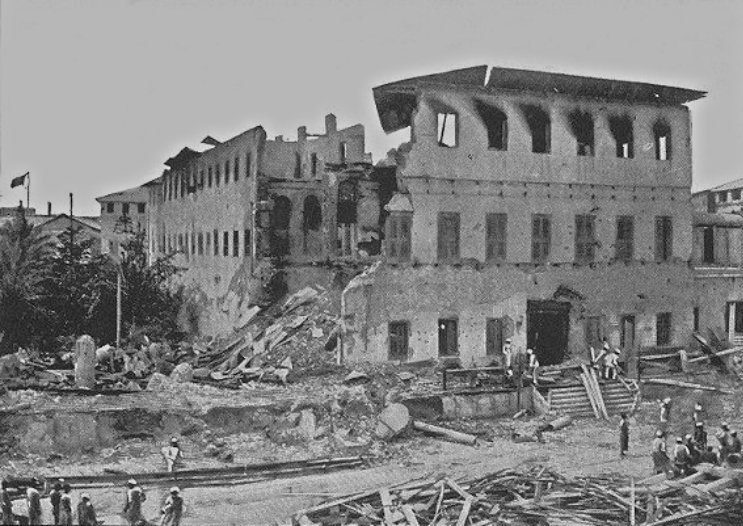 Richard Dorsey Mohun, Wikimedia Commons
Richard Dorsey Mohun, Wikimedia Commons
The Anglo-Zanzibar Conflict
A small naval action took place in the harbor, which resulted in the British sinking the Zanzibari royal yacht. The pro-British Zanzibari Askaris advanced on the palace. Some shots were fired from the palace to no effect.
The Anglo-Zanzibar Conflict
Khalid’s flag was shot down and all firing ceased at 9:46 am. Khalid’s forces suffered 500 casualties while one British sailor was injured.
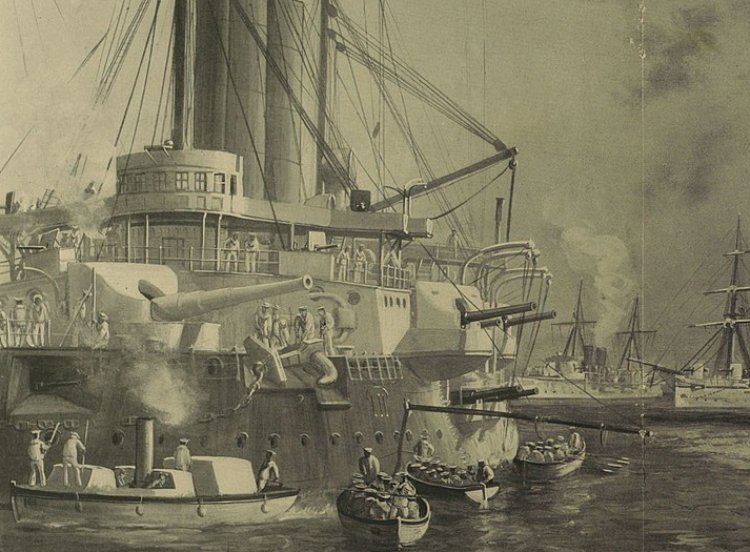 Fred T. Jane, Wikimedia Commons
Fred T. Jane, Wikimedia Commons
Aftermath
Khalid fled to the German consulate and was granted asylum. He later escaped to German East Africa on the mainland.
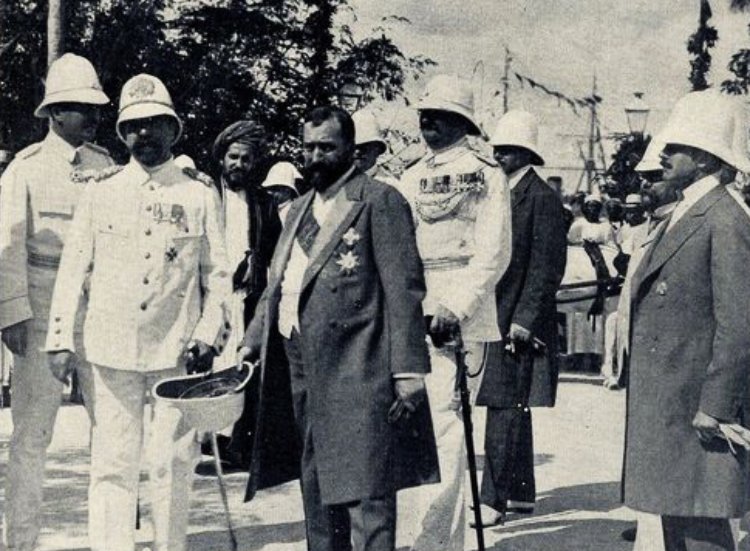 Unknown author, CC BY-SA 4.0,Wikimedia Commons
Unknown author, CC BY-SA 4.0,Wikimedia Commons
Aftermath
Sultan Hamoud was installed by the British—he was to lead a puppet government. The Anglo-Zanzibar conflict marked the end of the Sultanate of Zanzibar as a sovereign state. British control and influence in the region increased.
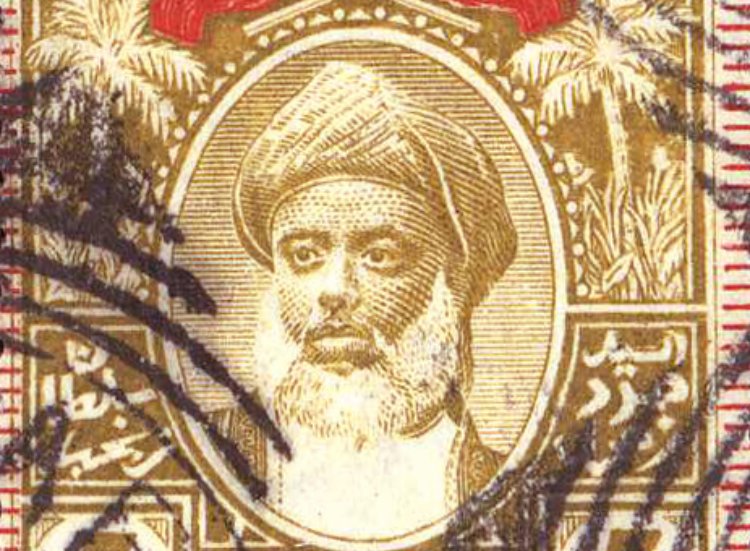 De la Rue & Co, Wikimedia Commons
De la Rue & Co, Wikimedia Commons
Aftermath
Lasting approximately 38 minutes, the Anglo-Zanzibar conflict is considered to be the shortest conflict in history. There is still some disagreement to the actual duration of the conflict as there is no definitive start or end to any conflict—conflicts that last years usually have no specific time of beginning or ending.
Aftermath
Some historians mark the start of the Anglo-Zanzibar conflict at 9 am, when the British ultimatum expired. Others place the start at 9:02 am with the first shots fired.
Aftermath
The end is often placed at 9:37 am, when the last shots were fired and the palace flag was struck. However, some sources place that last shot at 9:45 am. The British records were inconsistent, with some claiming the ceasefire was called at 9:35 am, while others log the ceasefire at 9:40 am, 9:41 am, and 9:45 am. Either way, it was all over in less an hour, and remains history’s shortest official war.

